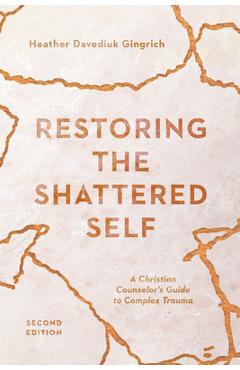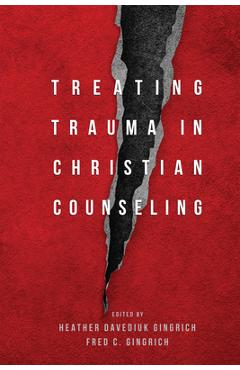Restoring the Shattered Self: A Christian Counselor\'s Guide to Complex Trauma - Heather Davediuk Gingrich

Detalii Restoring the Shattered Self: A
libris.ro
189.67 Lei
210.74 Lei
Religion
Heather Davediuk Gingrich
Restoring the Shattered Self: A - Disponibil la libris.ro
Pe YEO găsești Restoring the Shattered Self: A de la Heather Davediuk Gingrich, în categoria Religion.
Indiferent de nevoile tale, Restoring the Shattered Self: A Christian Counselor\'s Guide to Complex Trauma - Heather Davediuk Gingrich din categoria Religion îți poate aduce un echilibru perfect între calitate și preț, cu avantaje practice și moderne.
Preț: 189.67 Lei
Caracteristicile produsului Restoring the Shattered Self: A
- Brand: Heather Davediuk Gingrich
- Categoria: Religion
- Magazin: libris.ro
- Ultima actualizare: 28-10-2025 01:22:05
Comandă Restoring the Shattered Self: A Online, Simplu și Rapid
Prin intermediul platformei YEO, poți comanda Restoring the Shattered Self: A de la libris.ro rapid și în siguranță. Bucură-te de o experiență de cumpărături online optimizată și descoperă cele mai bune oferte actualizate constant.
Descriere magazin:
Nearly every professional counselor will encounter clients with a history of complex trauma. Yet many counselors are not adequately prepared to help those suffering from complex posttraumatic stress disorder (C-PTSD), including survivors of child abuse, religious cult abuse, and domestic violence. A lack of consistent terminology in the field makes finding resources difficult, but without reliable training counselors risk inadvertently retraumatizing those they are trying to help. In this second edition of Restoring the Shattered Self, Heather Davediuk Gingrich provides an essential resource for Christian counselors to help fill the gap between their training and the realities of trauma-related work. Drawing on over thirty years of experience with complex trauma survivors in the United States, Canada, and the Philippines, she ably integrates the established research on trauma therapy with insights from her own experience and an intimate understanding of the special concerns related to Christian counseling. In addition to presenting a three-phase treatment model for C-PTSD based on Judith Herman\'s classic work, Gingrich addresses how to treat dissociative identity disorder clients, respond to survivors\' spiritual issues, build resilience as a counselor in this taxing work, and empower churches to help in the healing process. This new edition is updated throughout to match the DSM-5 and includes new content on how the body responds to trauma, techniques for helping clients stay within the optimal zone of nervous system arousal, and additional summary sidebars. With this thoughtful guide, counselors and pastors will be equipped to provide the long-term help that complex trauma survivors need to live more abundantly. Nearly every professional counselor will encounter clients with a history of complex trauma. Yet many counselors are not adequately prepared to help those suffering from complex posttraumatic stress disorder (C-PTSD), including survivors of child abuse, religious cult abuse, and domestic violence. A lack of consistent terminology in the field makes finding resources difficult, but without reliable training counselors risk inadvertently retraumatizing those they are trying to help. In this second edition of Restoring the Shattered Self, Heather Davediuk Gingrich provides an essential resource for Christian counselors to help fill the gap between their training and the realit

Produse asemănătoare

Restoring the Shattered Self: A Christian Counselor\'s Guide to Complex Trauma - Heather Davediuk Gingrich
![]() libris.ro
libris.ro
Actualizat in 28/10/2025
189.67 Lei
Produse marca Heather Davediuk Gingrich

Restoring the Shattered Self: A Christian Counselor\'s Guide to Complex Trauma - Heather Davediuk Gingrich
![]() libris.ro
libris.ro
Actualizat in 28/10/2025
189.67 Lei

Treating Trauma in Christian Counseling - Heather Davediuk Gingrich
![]() libris.ro
libris.ro
Actualizat in 25/10/2024
297.6 Lei